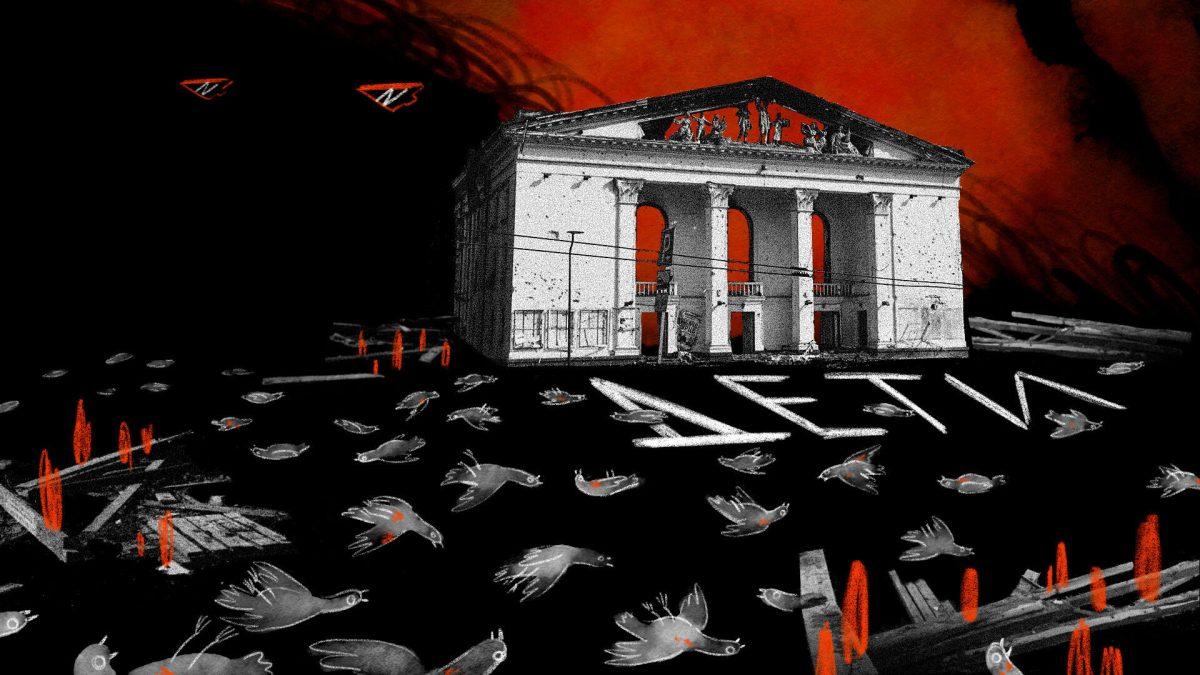NC State film alum Darya Levchenko presented student-made short Ukrainian animation films as part of the Global Film Series, bringing entertainment and messages of Ukrainian solidarity to campus.
The event began with a recorded message from Anastasiya Verlinska, head of the Linoleum Contemporary Animation and Media Art Festival. She introduced the films’ creators and discussed Ukraine’s current state given the Russian-driven political instability and violence within its borders.
“[The war’s] impact on the country is huge,” Verlinska said. “It has impacted the film industry in a very huge way, too.”
The screening entailed nine short animations, which spanned from horror to comedy. The list of titles included “Unnecessary Things,” a story about an intelligent robot who buys a human, learning desire and longing through the experience; “The Surrogate,” a horror about a medical respondent who allows a man to die for selfish reasons; and “The War that is Always Around,” a depiction of the war in Ukraine from the perspective of a character forced to flee her hometown for safety.
The screening’s final film was “Mariupol. A Hundred Nights,” which presents the state of Mariupol, a city in Ukraine destroyed by Russian forces. The film, compared to the previous eight, had the most realistic depiction of the impact of the war on the people of Ukraine, and Levchenko said screening that short film last was a conscious choice.
“I’ve been working with film festivals for ten years now,” Levchenko said. “As a programmer, I’m usually trying to put stories together to tell a story as a whole. [For] this, I tried to layer comedy, horror and darker content, [and] end on an impactful note … with something that will leave an afterthought.”
Levchenko said animation in Ukraine, like other art forms in the country, was largely government-funded before the escalation of the war. Since then, it has suffered from financial difficulty.
Animation is expensive, time-consuming, difficult to produce and even more difficult to share. Regardless, filmmakers like the ones whose work was shown during this event have dedicated their lives to creating this particular form of art and storytelling, each with a different intention.
Not all of the films had political undertones or messages. Many weren’t politically charged at all, and some weren’t even made during or since the escalation of the Russia-Ukraine war. Regardless of the message of any specific project, Levchenko said she would call animation one of the “bravest forms of art” in the country’s culture.
“Animation allows Ukrainian creatives to tackle topics that are taboo or hard to express through other arts,” Levchenko said. “It helps to tackle topics that aren’t in the media or the Ukrainian public at all.”
Levchenko received her Master of Arts in English with a film studies concentration from NC State in 2019 as a Fulbright Scholar. Since obtaining her degree from NC State, Levchenko has made it her mission to preserve Ukrainian culture and currently works in film festival programming, bringing awareness to global political issues.
Levchenko’s animated film screening event was the second in a two-part series she held on campus bringing light to Ukrainian culture. She said the experience went better than she anticipated, citing the turnout and participation during the screening event.
“It’s been an amazing opportunity to network to also spread the word about Ukrainian arts,” Levchenko said. [People are] coming up and asking all kinds of questions about programming and Ukrainian culture, [which is] great.”
Marian Fragola, director of community and engagement of NC State University Libraries and co-presenter of the Global Film Series, said that animated films have been shown in the Global Film Series before, but acknowledged the uniqueness of Levchenko’s event.
“Darya[‘s] film expertise is just … so impressive,” Fragola said. “We have shown animated films in the Global Film Series before, [which] seem to really be popular. But, this is a different kind of animation that I think people may not have been exposed to.”
Fragola said Levchenko’s expertise in programming and dedication to sharing film and spreading important cultural messages contributed to the creation and success of the event.
“Darya so eloquently said that animation is a way to deal with really heavy topics,” Fragola said. “I don’t know if people would be able to sit through like an hour and a half documentary [depicting the] war, … but then you see that short film at the end and the power of that. … I think this all has a really big impact.”
The Global Film Series’ next event will be a screening of the Indonesian film “Yuni” on Feb. 20.














